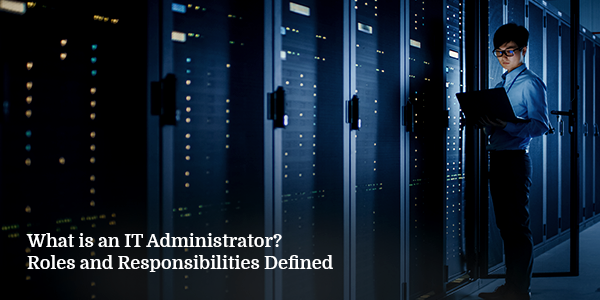
Elections are essential in any democratic society. Moreover, the results are integral to the sentiments of the business community, including entrepreneurs, investors, and recruiters. The results can determine your next steps and influence your attitude towards doing business in the country in the coming years.
As such, you should be aware of the results of the Philippine elections to see how the next administration can potentially change the recruitment and investment landscape and affect your business decisions. Here are a few insights.
What to Expect from the Next Administration
Small businesses
The COVID-19 pandemic has disrupted livelihood, jobs, and other major industries. In an interview, then-presidential aspirant Ferdinand Marcos Jr. says that the economy’s underdogs are the micro, small, and medium enterprises (MSMEs), but MSMEs can offer new jobs that people greatly need now, especially with many willing to open businesses and become entrepreneurs.
The plan is to assist MSMEs by granting them tax amnesties, especially those affected by the pandemic, and allocating portions of the Internal Revenue Allotment (IRA) from local government units (LGUs) so that MSMEs stop going into debt, start building their businesses, and provide jobs.
Marcos Jr. also discussed plans to improve the ease of doing business in the Philippines. According to the World Bank report in 2020, the Philippines ranked 95th in global competitiveness to foreign investors.
The president-elect’s plan is to jumpstart the economy by helping more MSMEs open. The government will streamline processes to make it easier for businesses to open, such as acquiring permits, registering property, getting credit, etc.
Economy
Marcos Jr.’s economic plans have always been shrouded in mystery, as his campaign lacked details about how he intends to manage the economy. Investor and entrepreneur anxiety is exacerbated by the slow establishment of the Marcos economic team.
The COVID-19 pandemic has brought numerous challenges that greatly impacted the economy, such as hiking gas prices, rising costs of goods, and a mountain of debt from pandemic-induced recession. Goldman Sachs foresees the Marcos Jr. administration continuing Duterte’s economic plans and policies, pointing to increased spending and low debt management.
The next administration will need to pursue more tax reforms and increase taxable income to address the pandemic-related debt. Here are some economic policies set up by the previous administration:
- Corporate Recovery and Tax Incentives for Enterprises Act (CREATE Act) – tax incentives are used to minimize the financial burden on international and domestic firms
- Retail Trade Liberation Act – lowers the minimum paid-up capital requirements for international businesses, making it easier to enter the industry
- Senate Bill (SB) 2094 Amendment – allows 100% foreign ownership in public services
- Foreign Investment Act – where international investors can start and fully own domestic enterprises, including micro and small businesses, in the Philippines
While the Philippines experienced a GDP growth of 8.3% in the first quarter of 2022, beating the prediction of 7.7%, Investors are less enthusiastic about the prospect of a Marcos president, perhaps due to memories of the family’s previous tenure in office.
A key watchpoint for investors and business people is if cronyism and corruption deteriorate under the incoming presidency. These two factors continue to be a significant risk for foreign enterprises and, if not addressed, may be detrimental to the economy as a whole.
Infrastructure and technology
The incoming administration is targeting to prioritize the enhancements of digital infrastructure in the country, specifically internet speed and connection. According to Marcos and Duterte, the pandemic’s peak highlighted the country’s slow internet connection, as teachers and students faced issues while conducting online classes.
A more reliable connection was also emphasized when more companies started adopting a hybrid work setup. This decision has led to a rise in demand for faster and more stable internet connections that could add to the country’s appeal to foreign business investors and offshore employers.
With these problems arising, Marcos encouraged the National Telecommunications Commission (NTC) to conduct a performance audit of all telecommunications companies to examine the country’s internet service quality. Another plan of the incoming administration is the improvement of the country’s technological and physical infrastructure to make the Philippines the next logistics hub.
Marcos noted the country’s aging seaports, airports, and railways and how they need to be upgraded through port automation, computerization, and Artificial Intelligence (AI) to boost productivity and reduce port congestion, resulting in cheaper shipping costs and more job opportunities.
What Do These Mean for Recruiters and Investors?
Recruiters
The Philippines’ employment rate was 94.2% last March 2022, seeing a 1.3% increase from the previous year. This increase proves the employability of Filipinos and how they manage despite the country’s current situation.
Fortunately, the Philippine demographic remains youthful. The country’s median age is 25.7, with Filipinos getting more educated, so hiring in the Philippines remains attractive. If and when the digital infrastructure plan pushes through, it can make telecommunication easier, and so is offshoring to or hiring remote workers from the Philippines. It can also create more jobs domestically.
Investors
While the Philippine elections caused jitters, the country remains fundamentally sound and, hence, still a great place for investors. The government efforts announced in March 2022, such as reopening the economy, increasing COVID-19 immunization, lifting mobility restrictions, and relaxing international travel restrictions, are expected to assist the services industry.
The Philippines’ economic recovery is expected to accelerate this year and in 2023. The economy may grow by 6% in 2022 and 6.3 % in 2023, according to the Asian Development Outlook 2022.
Set on Growing Stronger
There has been a lot of anxiety surrounding the Philippine elections, and the lack of details regarding platforms caused unease among major foreign investors. However, based on the data gathered, the Philippines is set for growth despite the COVID-19 pandemic and elections. You can expect changes and improvements in areas like education, service, and local industry sectors.
The Philippines remains a top choice for investors for its high employability and great qualifications. If you need help starting an offshore team, contact a recruitment agency in the Philippines today! Manila Recruitment can help match you with the most qualified team to help you build your business. Contact us today!













